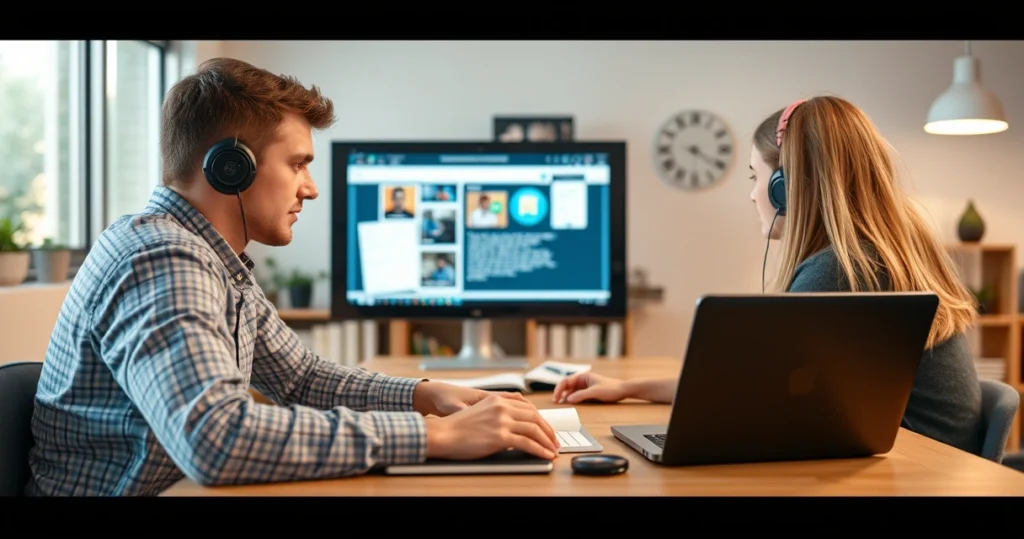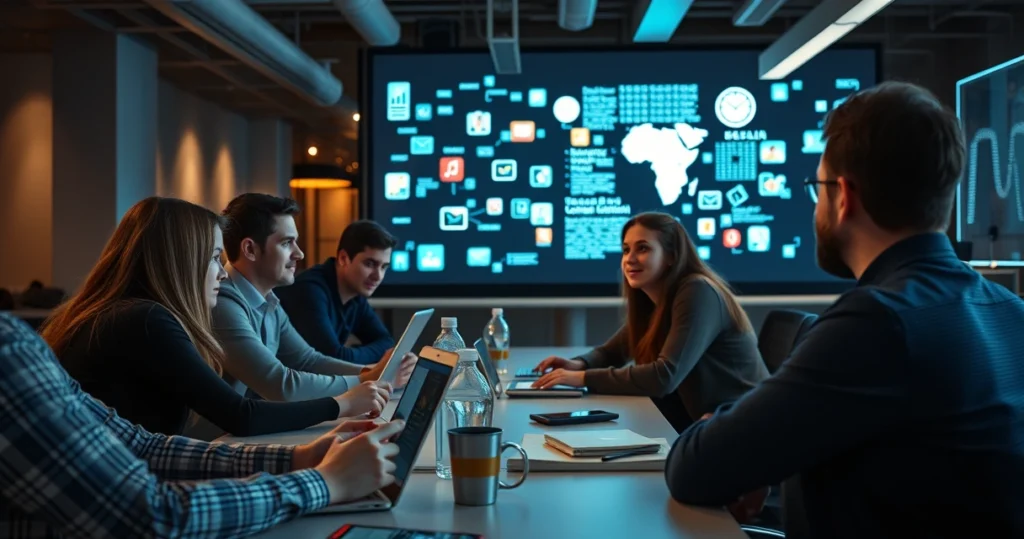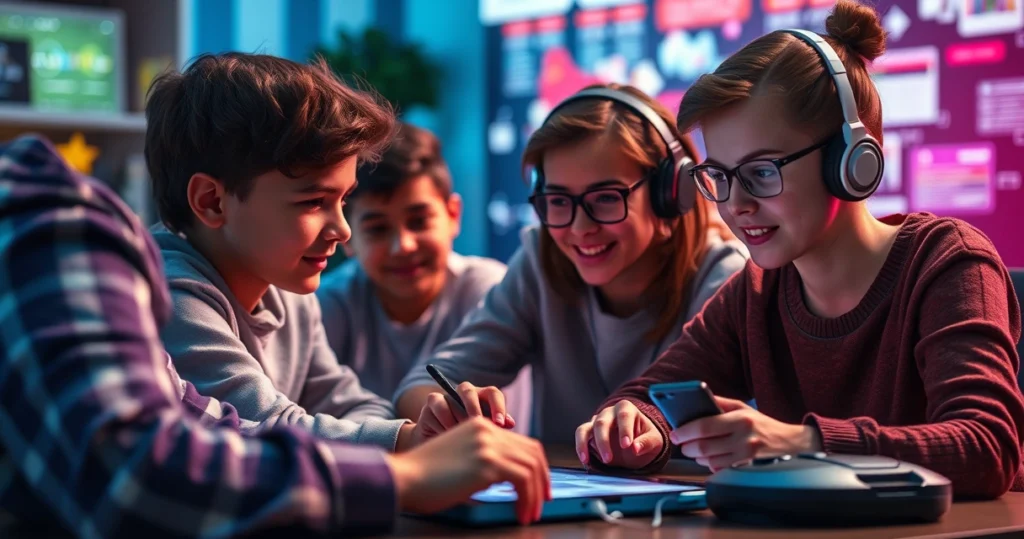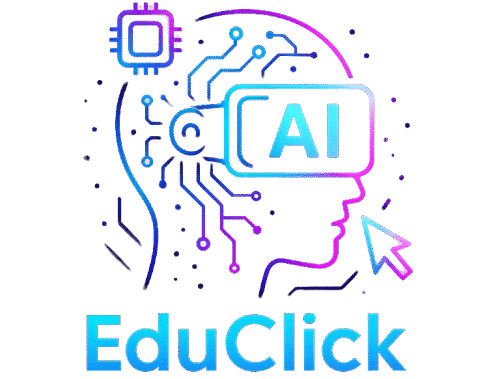The Transformative Power of Personalized Learning Through EdTech: What’s Working?
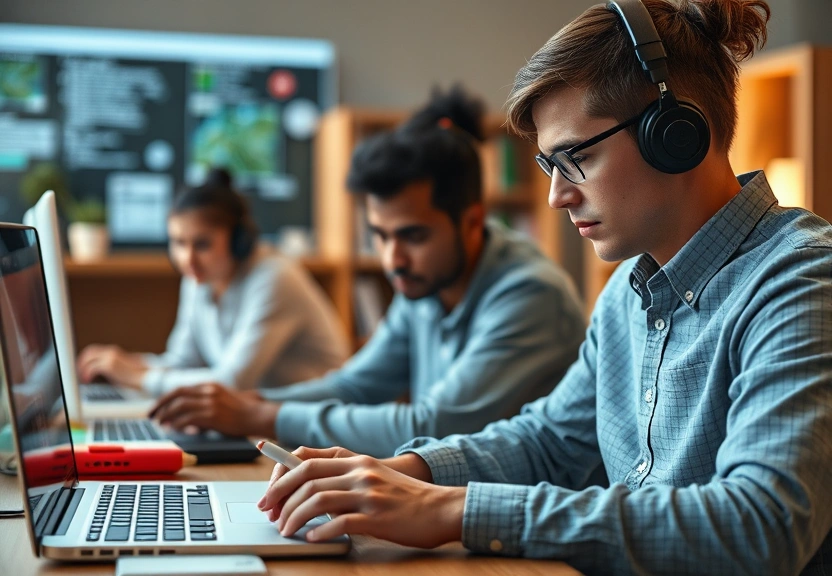
For many, traditional learning environments have felt restrictive, often catering to the median learner in a room full of unique individuals. If you’ve ever felt like just another face in the crowd, you’re not alone. Many have yearned for an education that acknowledges personal strengths and weaknesses, embracing the diversity each student brings to the table. Personalized learning through educational technology aims to fulfill that yearning, reshaping how we think about education.
The transition from one-size-fits-all to a more customized approach can feel daunting. Perhaps you’ve already encountered some form of edtech in your educational journey, feeling the initial discomfort of change or the thrill of a system that finally gets you. As we delve deeper into this topic, you’ll discover the vast potential personalized learning holds and how it’s already making a significant impact. Whether you’re a student, educator, or parent, understanding these changes can empower you to make informed decisions about your educational path.
Understanding Personalized Learning in the Context of EdTech
Defining Personalized Learning
At its core, personalized learning tailors educational experiences to meet the individual needs of each learner. Unlike traditional approaches, it focuses on flexibility, allowing students to learn at their own pace and style.
- Customized content: Materials are adjusted to fit individual learning styles and interests.
- Flexible pacing: Students can progress as they’re ready, without being held back or rushed.
- Adaptive feedback: Real-time data helps educators adjust strategies to optimize student success.
The Role of EdTech in Personalization
Educational technology, or edtech, serves as a catalyst for personalized learning, providing tools and platforms to facilitate individualized education. Through technology, educators can implement innovative teaching methods with ease.
- Learning management systems: Platforms like Moodle and Blackboard offer a centralized hub for personalized content delivery and tracking.
- Adaptive learning software: Tools like DreamBox and Smart Sparrow adjust content based on student performance and learning speed.
- Data analytics: Platforms use data to provide insights into student progress, helping tailor future lessons more effectively.
Case Studies in Successful Implementation
Several educational institutions have embraced edtech to personalize learning, with impressive results. Let’s explore a few success stories:
- The School of One in New York: They utilize algorithms to customize daily schedules for students, ensuring personalized instruction in math.
- Summit Public Schools: They’ve adopted a personalized learning model, using technology to support project-based learning and mentorship.
- AltSchool in San Francisco: This institution integrates technology into every aspect of the learning experience, offering a highly personalized education.
Remote Learning Strategies for Personalization
Effective Use of Online Platforms
Online platforms have become essential in delivering personalized learning experiences, especially in remote settings. Choosing the right platform is crucial.
- Zoom and Microsoft Teams: Facilitate live classes with interactive features such as breakout rooms.
- Google Classroom: Offers seamless integration with other Google services, enhancing personalized assignments and feedback.
- Khan Academy: Provides free resources tailored to individual learning paths, supporting self-paced education.
Incorporating Interactive Tools
Interactive tools can significantly enhance engagement and personalization by making learning active and participatory.
- Kahoot!: This platform uses games to make learning fun and tailored to student interests.
- Padlet: A virtual bulletin board where students can post thoughts, facilitating personalized and collaborative learning.
- Nearpod: Allows teachers to create multimedia presentations that include polls, quizzes, and VR experiences.
Challenges and Solutions
While remote learning offers numerous benefits, it also presents challenges that must be addressed to ensure effective personalization.
- Access issues: Ensuring all students have access to necessary technology and internet connectivity.
- Engagement: Overcoming screen fatigue and ensuring students remain engaged in virtual learning.
- Professional development: Providing educators with training to effectively use edtech tools for personalization.
🎥 Vídeo complementar sobre o tópico
The Impact of Personalized Learning on Student Outcomes
Improved Academic Performance
Personalized learning through edtech has been shown to improve academic performance by addressing individual learning gaps and strengths.
- Higher test scores: Schools implementing personalized learning often report significant improvements in standardized test performances.
- Increased comprehension: Students are more likely to understand and retain information when it is tailored to their learning style.
Enhanced Student Engagement
Engagement is crucial in education, and personalized learning significantly boosts student interest and participation.
- Real-world applications: Students can see the relevance of their studies through personalized, context-driven content.
- Motivation: Customizing education to student interests and goals increases motivation to learn.
Social and Emotional Learning
Personalized learning supports social and emotional development by fostering a supportive and inclusive environment.
- Confidence building: Students gain confidence as they succeed in a personalized learning environment.
- Collaboration: By encouraging group projects and peer learning, students develop social skills.
Practical Applications of EdTech in Personalized Learning
Implementing Adaptive Learning Technologies
Adaptive learning technologies are essential in providing personalized education, using algorithms to modify content in real-time.
- Real-time adjustments: Content is dynamically adjusted based on student performance and learning speed.
- Personalized pathways: Algorithms create unique learning paths for each student, focusing on areas that need improvement.
Using Data Analytics to Inform Instruction
Data analytics play a critical role in personalized education, providing valuable insights into student progress and struggles.
- Tracking progress: Teachers can monitor student performance and adjust instruction based on data.
- Identifying trends: Analytics can reveal broader trends and patterns, informing curriculum development.
Gamification in Education
Gamification adds a layer of engagement and motivation by incorporating game-design elements into learning environments.
- Reward systems: Points, badges, and leaderboards can motivate students and make learning fun.
- Interactive learning: Games provide interactive experiences that promote deep learning and retention.
The Future of Personalized Learning Through EdTech
Emerging Technologies in Education
The future of personalized learning is bright, with emerging technologies poised to further enhance educational experiences. Let’s explore a few:
- Artificial Intelligence: AI can offer more nuanced personalizations, predicting student needs even before they articulate them.
- Virtual and Augmented Reality: These technologies provide immersive learning experiences, making complex concepts tangible.
- Blockchain: Securely stores academic records, allowing for verifiable student achievements and credentials.
Overcoming Future Challenges
While the advancements in edtech are promising, future challenges must be addressed to fully realize personalized learning’s potential.
- Privacy concerns: Ensuring student data is protected and used ethically.
- Equity in access: Bridging the digital divide to ensure all students benefit from technology.
- Continuous adaptation: Educators must stay ahead of technological advancements to effectively integrate them into the classroom.
Preparing Educators for the Future
As technology continues to evolve, preparing educators to effectively use these tools is essential for the success of personalized learning.
- Professional development: Ongoing training in new technologies and teaching methods is crucial.
- Collaboration: Encouraging educators to share insights and strategies for implementing personalized learning.

FAQs About Personalized Learning Through EdTech
What is personalized learning in the context of edtech?
Personalized learning through edtech involves tailoring educational experiences to individual student needs using technology. It includes adapting content, pacing, and teaching methods to suit each learner’s style and preferences, enhancing engagement and outcomes.
How does edtech facilitate personalized learning?
Edtech facilitates personalized learning by providing tools like adaptive learning software, data analytics, and online platforms that cater to individual learning paths, monitor progress, and adjust content according to student performance in real-time.
Why is personalized learning important?
Personalized learning is important because it acknowledges and accommodates individual differences. It enhances student engagement, improves academic outcomes, and supports emotional and social development by creating an educational environment that resonates with each learner.
What are some challenges associated with personalized learning?
Challenges include ensuring equitable access to technology, protecting student data privacy, and providing adequate training for educators to effectively implement and utilize personalized learning tools and strategies.
Can personalized learning be implemented in traditional classrooms?
Yes, personalized learning can be implemented in traditional classrooms through differentiated instruction, leveraging technology for individualized assignments, and using data to inform tailored teaching approaches.
What role do educators play in personalized learning?
Educators play a crucial role in personalized learning by designing and implementing individualized learning plans, using data to adjust instruction, and facilitating a supportive and engaging learning environment.
How does personalized learning affect student motivation?
Personalized learning positively affects student motivation by aligning educational content with their interests and goals, providing autonomy in learning, and offering immediate feedback and rewards that encourage persistent engagement.
What technologies are most effective for personalized learning?
Technologies such as adaptive learning platforms, learning management systems, and data analytics tools are effective for personalized learning, as they provide tailored content, track progress, and offer insights to optimize instruction.
How can parents support personalized learning at home?
Parents can support personalized learning at home by creating a conducive learning environment, encouraging curiosity, providing access to educational technology, and collaborating with educators to align home activities with school learning objectives.
What future trends can we expect in personalized learning through edtech?
Future trends in personalized learning through edtech include the integration of AI for deeper customization, the use of VR and AR for immersive learning experiences, and blockchain technology for secure academic record-keeping.
Conclusion: Embracing the Future of Education
The world of education is undergoing a transformation, with personalized learning through edtech leading the charge. As you’ve learned, this approach is redefining the way students engage with educational content, making learning more relevant and accessible for all. The promise of personalized learning lies in its ability to connect with each student at their unique level, fostering a love for learning that can last a lifetime.
As we look to the future, embracing the possibilities of educational technology is essential. Whether you’re an educator keen on implementing these strategies in your classroom, a student seeking a more fulfilling learning experience, or a parent advocating for your child’s education, your role in this transformation is vital. Stay informed, be proactive, and most importantly, be open to the endless opportunities that personalized learning and edtech offer.
Engage with your community, share insights, and take action to support educational advancements. By doing so, you’ll not only enrich your own educational journey but also contribute to a future where learning is as diverse and dynamic as the students it serves. Join the conversation and be part of the change. Together, we can build an educational landscape that truly reflects the needs and potentials of every learner.
Key Takeaways
- Personalized learning tailors education to individual student needs, enhancing engagement and outcomes.
- Edtech plays a crucial role in facilitating personalized learning through tools like adaptive software and data analytics.
- Remote learning strategies can effectively support personalized education when integrated with the right technologies.
- Personalized learning positively impacts academic performance, student motivation, and social-emotional development.
- The future of personalized learning looks promising with the integration of AI, VR, and other emerging technologies.

